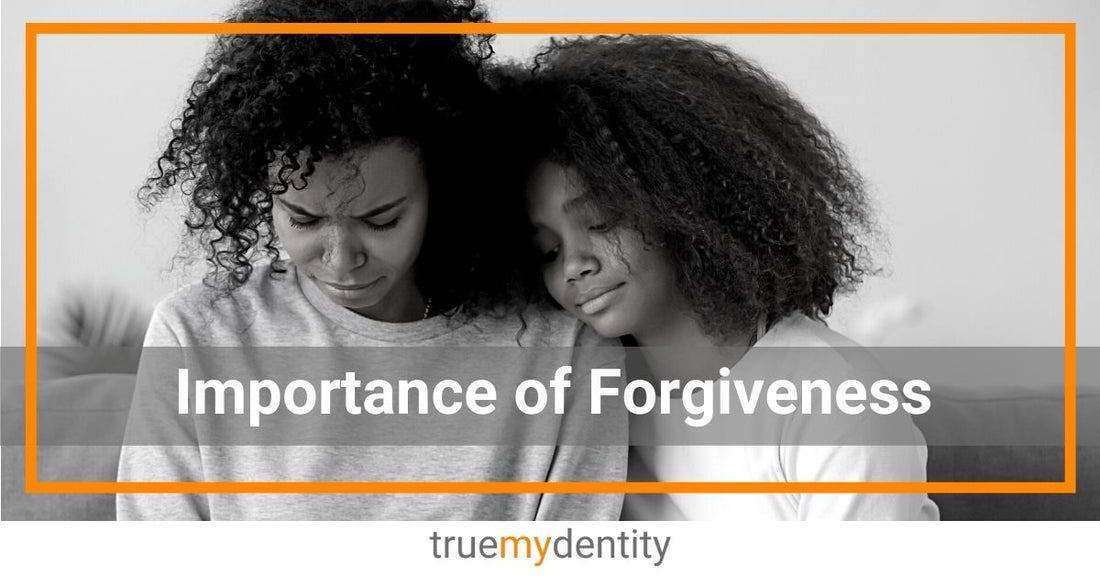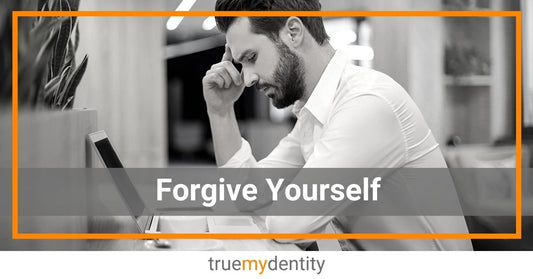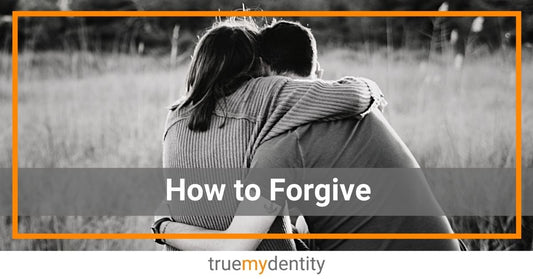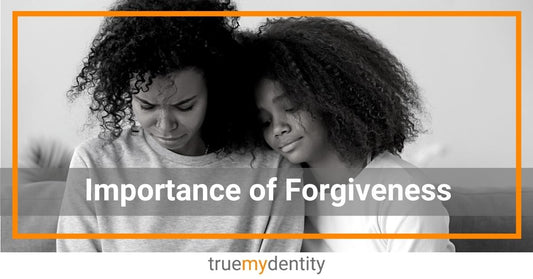Why is forgiveness important? Forgiving people is a powerful action that can release us from negative emotions and allow us to move forward. It can help us let go of grudges and resentments, and create space for healing and growth. Forgiveness can also bring a sense of peace and closure, allowing us to focus on the present moment and the positive aspects of our lives. Forgiving people can have a transformative effect on our well-being and the quality of our relationships. In this post we review the importance of forgiving people and some of the powerful ways you can do it.
Complete our free questionnaire and find out if being forgiving is one of your most dominant character traits, and which of the other 58 traits are also your most powerful qualities.
Why is Forgiveness Important for You?
Promotes Healing
Forgiving people can help us heal emotionally and move on from past hurts. When we hold onto anger, resentment, and other negative emotions toward others, it can lead to stress, anxiety, or even physical health problems. Forgiveness can help release those negative emotions and allow us to feel more at peace.
Fosters Growth
When we choose to forgive, it requires us to confront our own emotions and values. It can help us learn from our past experiences. It can provide an opportunity for reflection and introspection, leading to greater self-awareness and personal development. Forgiving people often requires us to put ourselves in someone else's shoes and try to understand their perspective. This can help us to become more empathetic and compassionate toward others, which can have a positive impact on our relationships and interactions with others.
Creates a Sense of Closure
Holding onto anger and resentment can create a cycle of negative emotions that can be difficult to break. Forgiveness can help to provide a sense of healing or closure to painful or traumatic experiences. It can help us move on from the past and focus on the present and future, allowing us to live more fully in the present moment.
Why is Forgiveness Important for Relationships?
Forgiveness is essential in any relationship because it plays a crucial role in resolving conflicts and restoring harmony. By forgiving someone, we let go of the resentment, anger, and hurt that can poison relationships. This creates space for healing and reconciliation, allowing us to move forward with renewed trust and intimacy. Forgiveness also promotes growth and development within the relationship, as it allows both parties to learn from their mistakes and work towards a better future. Forgiving others also fosters open and honest communication; encouraging individuals to share their feelings and thoughts in a safe and supportive environment. Here is a breakdown of the primary reasons why forgiveness is important in relationships and specific examples of how they can play out between two people.
Resolving Conflicts
Forgiveness is important for resolving conflicts between people because it allows us to let go of the negative emotions that can prolong or escalate the conflict. When we hold onto anger, resentment, or a desire for revenge, we create a barrier to communication and understanding, making it more difficult to find a resolution.
Forgiveness breaks down this barrier by opening the lines of communication and creating a space for empathy and understanding. It enables us to see the situation from the other person's perspective and find a mutually acceptable solution. Forgiveness promotes a sense of accountability and responsibility, as both parties must acknowledge their role in the conflict and work together to prevent it from happening again. By forgiving, we also demonstrate our willingness to move forward and rebuild the relationship, which can lead to a more positive and fulfilling connection in the future.
Imagine two family members, Emma and Jack, who have a long-standing grudge against each other. They had a falling out years ago and have not spoken since. However, one day, Emma decides to reach out to Jack to try and resolve their conflict.
Through a series of conversations, Emma and Jack are able to express their feelings and grievances. Eventually, Emma apologizes for her part in the conflict, and Jack is able to share his own feelings and perspective. Emma listens with an open mind and heart and offers forgiveness for Jack's actions.
By forgiving each other, Emma and Jack are able to let go of the negative emotions that were keeping them apart. They are able to rebuild trust and strengthen their bond as family members, rekindle their relationship, and discover how much they’ve missed spending time together.
Building Trust
Forgiveness is important for building trust between people because it demonstrates a willingness to let go of past issues and move forward with a renewed sense of respect and understanding. When we forgive someone, we show that we are willing to give them a second chance, to work toward trusting them again, and we are willing to continue pursuing a more positive relationship. This act of forgiveness can help to break down the barriers of fear, doubt, and suspicion that can erode trust between two people.
Imagine two colleagues, Alex and Beth, who work closely together on a project. Alex made a mistake that caused the project to be delayed, and Beth was frustrated and disappointed. She had a hard time trusting Alex to do his part of the project in the future.
However, Alex apologized sincerely and asked for forgiveness. He took responsibility for his mistake and made a plan to prevent similar mistakes from happening in the future. Beth chose to forgive him for his mistake, showing she was still willing to work together, and move forward together with plans to produce outstanding results.
Through this process of forgiveness, Alex and Beth were able to establish mutual respect and build trust for each other. Alex's willingness to take responsibility and make a plan to prevent similar mistakes showed Beth that he was committed to their project and their working relationship. Beth's willingness to forgive Alex showed him that she believed in his ability to make things right.
As they continued to work together, Alex and Beth communicated more effectively, and they were able to build a strong working relationship based on trust and mutual respect. They were able to rely on each other to do their part of the project, and they were able to achieve their goals successfully.
Strengthening the Bond
Forgiveness is important for strengthening the bond between people because it allows us to repair the damage caused by hurtful actions or words, which can create a deeper sense of connection and intimacy in our relationships. When we forgive someone, we are choosing to let go of the past and move forward with a renewed sense of hope and optimism. This act of forgiveness can help to create a sense of shared experience, as both parties have been through a difficult time and come out the other side stronger and more connected.
Imagine a married couple, Tom and Sarah, who have been together for many years. Recently, Tom made a mistake and did something that hurt Sarah deeply. She was angry and hurt, and it caused an enormous strain in their relationship.
After some time and serious contemplation, Sarah decides to forgive Tom. She understands that he made a mistake and that forgiveness is necessary to move forward in their relationship. Tom is grateful for her forgiveness and expresses deep remorse for his actions and the hurt that he caused her.
Through forgiveness, Sarah and Tom are able to rebuild trust and strengthen their bond. They are able to communicate more openly and honestly with each other, and they work together to prevent similar mistakes from happening in the future.
Promoting Growth
Forgiveness can promote personal growth by encouraging individuals to reflect on their actions and take responsibility for their mistakes. It can also help individuals develop greater resilience and coping skills.
Let's say a person named John had a falling out with his friend, Mike, because John felt that Mike had betrayed him by sharing a personal secret with others. John's trust in Mike was shattered, and he held onto feelings of anger and resentment for a long time.
However, John eventually decides to forgive Mike for his mistake. In doing so, he takes responsibility for his own feelings and chooses to move forward rather than dwelling on the past. As John works through the forgiveness process, he realizes that holding onto grudges and anger is not healthy for him or his relationships.
Through forgiveness, John grows personally and learns to communicate more effectively with his friends and family. He becomes more empathetic and understanding towards others, and he learns to let go of past hurts in order to move forward. By practicing forgiveness, John becomes a better friend, family member, co-worker, and partner because he is able to cultivate stronger and more positive relationships.
Improving Communication
Forgiveness can improve communication between partners by promoting openness, honesty, and vulnerability. It can create a safe space for both individuals to express their feelings and needs without fear of judgment or rejection. It allows for the resolution of conflicts, promotes understanding, reduces tension and negative emotions, and builds trust. It enables both parties to move past conflicts and focus on finding solutions together.
Imagine two friends, Eva and Jane, who had an argument over a misunderstanding. Eva was upset that Jane didn't show up to a meeting they had scheduled, but Jane had actually forgotten about it. Eva didn't communicate her frustration effectively and lashed out at Jane, and because they both were angry, hurt and put out; their friendship suffered.
If Eva chooses to forgive Jane for the mistake and approaches her with a non-judgmental attitude, it can improve communication between them. Eva could start the conversation by saying something like, "I understand that you forgot about our meeting, and I want to move past it. I also want to apologize for how I reacted. Can we talk about how we can avoid misunderstandings in the future?" This approach shows a willingness to forgive and move forward, and it can help to rebuild trust between the two friends.
By forgiving Jane, Eva can let go of her resentment and communicate more openly and honestly with her. In turn, Jane is more likely to be receptive to Eva's communication and work towards a solution to prevent future misunderstandings.
Why is Forgiveness So Hard?
Forgiveness is a difficult and complex process that can be influenced by various factors. Painful emotions triggered by hurt, betrayal of trust by a close friend or family member, fear of vulnerability, lack of remorse, and misconceptions about forgiveness can all make forgiving someone who hurt you challenging. Forgiveness requires time, effort, and emotional work, and it may not always be possible or appropriate. Here we explore some of the factors that can make forgiveness challenging.
When someone hurts us, it can trigger strong negative emotions such as anger, hurt, and resentment. These emotions can be overwhelming and may make it difficult to let go of the hurt. If the person who hurt us was someone we trusted, such as a close friend or family member, it can be particularly difficult to forgive them. The betrayal of trust can create a sense of disillusionment and make it harder to rebuild the relationship.
Forgiving someone requires us to be vulnerable and open ourselves up to the possibility of being hurt again. This can be scary, especially if we have been hurt in the past. And we need to tread lightly or back away entirely if the person who hurt us does not show any remorse or take responsibility for their actions. This can make it really hard to forgive someone if they do not seem to care about the harm they have caused.
Forgiveness is often misunderstood as a form of weakness or condoning bad behavior. In reality, forgiveness can be extremely difficult and one of the most challenging processes a person can go through with another person. But, it can also be extremely rewarding to move past grievances by enduring the process together and building a stronger bond.
Finding Help to Forgive and Let Go of Hurt
It's important to remember that forgiveness is a process, and it can take time and effort to work through. Seeking help from a professional or support group can be a valuable part of that process. If someone is having trouble forgiving someone who has hurt them, there are a few different options for getting help to work through it. Here are some suggestions:
Therapy
A mental health professional, such as a therapist or counselor, can help a person explore their feelings of hurt and anger and develop coping strategies for dealing with those emotions. Therapy can also provide a safe space for the person to express themselves and work through the process of forgiveness at their own pace.
Support Groups
There are many support groups available for people who have experienced trauma or betrayal and are struggling to forgive. These groups can provide a sense of community and understanding, and allow people to connect with others who are going through similar experiences.
Self-Help Resources
There are many books, articles, and online resources available that provide guidance on forgiveness and healing. Some popular resources include:
- The Art of Forgiveness, by Desmond Tutu
- Forgive for Good, by Fred Luskin
- The Forgiveness Project
Spiritual or Religious Guidance
Seeking guidance from a spiritual or religious leader can be helpful in working through forgiveness. Many faith traditions place a strong emphasis on forgiveness and offer resources and support for those who are struggling to forgive.
Forgiving - True Mydentity Style
True Mydentity offers designs on our clothes that highlight 58 positive character traits. The powerful forgiving trait is one of the 58 character traits featured. We believe if you know your dominant positive characteristics; focus on what you do to learn, work and build relationships using these dominant traits; you will feel more fulfilled and closer to your purpose. And as you improve upon leveraging these positive character traits in those three areas of your life; you move toward discovering your full potential.
If being forgiving is an important part of who you are, make True Mydentity’s Forgiving apparel part of your character’s power suit; and be the forgiving person you’re meant to be.
VIEW FORGIVING APPAREL COLLECTION >>
Complete True Mydentity’s FREE questionnaire and find out which of the 58 traits are your most dominant.





